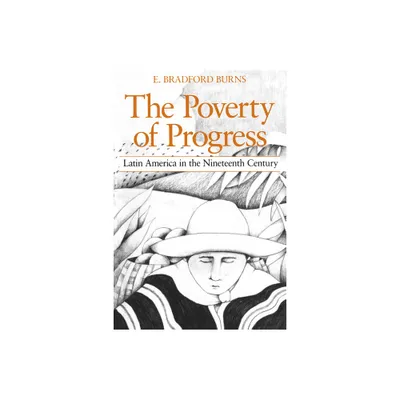Home
Environment, Knowledge, and Injustice Lesotho: The Poverty of Progress
Loading Inventory...
Barnes and Noble
Environment, Knowledge, and Injustice Lesotho: The Poverty of Progress
Current price: $110.00


Barnes and Noble
Environment, Knowledge, and Injustice Lesotho: The Poverty of Progress
Current price: $110.00
Loading Inventory...
Size: Hardcover
*Product Information may vary - to confirm product availability, pricing, and additional information please contact Barnes and Noble
Shows that a fraught historical process was at work in which Basotho drew on local and global sources of knowledge and how this small nation surrounded by South Africa can serve as a valuable case-study for wider conversations about 'progress' and 'modernization' in the Global South.
Both place-based environmental history and global intellectual history, this book explores the politics of environment, agriculture, poverty, development, and science in Lesotho. Drawing on diverse experiences with this landlocked, mountainous nation, and based on bilingual archival and oral history research in Sesotho and English, the book examines how Basotho intellectuals, farmers, migrant workers, chiefs, experts, and politicians formed vernacular ideas of tsoelopele (progress) amid the structural violence of colonialism and capitalism in southern Africa. Rather than a unidirectional flow of 'enlightened' knowledge from Europe to Africa, the study shows that a fraught historical process was at work in which Basotho drew on local and global sources of knowledge, from ancestral agricultural practices to colonial soil science and from African American missionaries to African nationalists in Ghana. Basotho ideas about tsoelopele, it is argued, informed the many political, social, and environmental innovations that enabled survival within a sea of white supremacy and that underpin approaches to development in independent Lesotho. Throughout, the book shows how this small nation surrounded by South Africa can serve as a valuable case-study for wider conversations about 'progress' and 'modernization' in the Global South.
Both place-based environmental history and global intellectual history, this book explores the politics of environment, agriculture, poverty, development, and science in Lesotho. Drawing on diverse experiences with this landlocked, mountainous nation, and based on bilingual archival and oral history research in Sesotho and English, the book examines how Basotho intellectuals, farmers, migrant workers, chiefs, experts, and politicians formed vernacular ideas of tsoelopele (progress) amid the structural violence of colonialism and capitalism in southern Africa. Rather than a unidirectional flow of 'enlightened' knowledge from Europe to Africa, the study shows that a fraught historical process was at work in which Basotho drew on local and global sources of knowledge, from ancestral agricultural practices to colonial soil science and from African American missionaries to African nationalists in Ghana. Basotho ideas about tsoelopele, it is argued, informed the many political, social, and environmental innovations that enabled survival within a sea of white supremacy and that underpin approaches to development in independent Lesotho. Throughout, the book shows how this small nation surrounded by South Africa can serve as a valuable case-study for wider conversations about 'progress' and 'modernization' in the Global South.


















